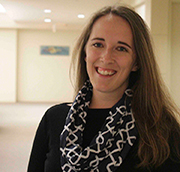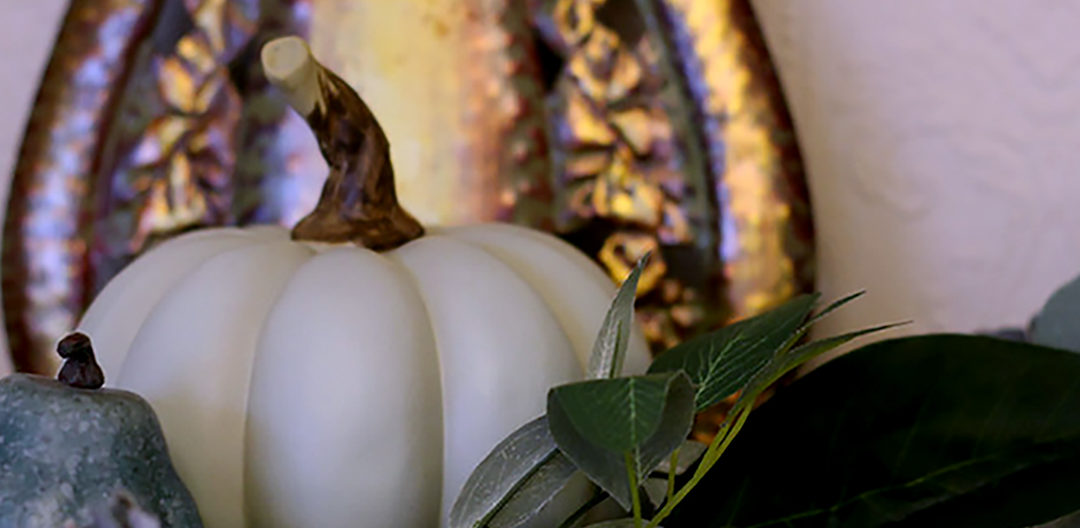by SommerAnn McCullough
Every year about this time, as I prepare for Thanksgiving and the rush of the Christmas season that is soon to follow, I look forward to the many traditions my family keeps. I love choosing the first Christmas playlist that we will listen to while preparing Thanksgiving dinner, snuggling up to watch “White Christmas” with our slices of pie after the dishes are done, and waking up early on the Friday after Thanksgiving to choose our Christmas tree.
And inevitably, as I’ve grown up, other traditions have changed or been broken. Going Black Friday shopping at midnight no longer holds the same appeal as it did when I was in high school, and I no longer countdown the days of Advent with pieces of chocolate.
There are some traditions that remain important and timely, and others that no longer bring me closer to my family or the teachings of Jesus during the Christmas season. In Luke’s gospel, we see Jesus responding to traditions in two ways: breaking them to become closer to God, or starting new rituals to teach more about God’s compassion.
In the sixth chapter of Luke, Jesus heals a man on the Sabbath, breaking a very important tradition held by the religious scholars of the time. Luke writes,
“On another sabbath he entered the synagogue and taught, and there was a man there whose right hand was withered. The scribes and the Pharisees watched him to see whether he would cure on the sabbath, so that they might find an accusation against him. Even though he knew what they were thinking, he said to the man who had the withered hand, ‘Come and stand here.’ He got up and stood there. Then Jesus said to them, ‘I ask you, is it lawful to do good or to do harm on the sabbath, to save life or to destroy it?’ After looking around at all of them, he said to him, ‘Stretch out your hand.’ He did so, and his hand was restored.” (Luke 6:6-10)
We see Jesus standing in defiance of this tradition that the Pharisees and religious scholars kept, choosing to heal on the holy day of rest. In this instance, Jesus sees it as an act of good or evil: Do we preserve life or destroy it? Jesus understands that there is something more important here than the tradition of keeping the sabbath. He is choosing to break a well-regarded tradition to carry forth God’s gospel and his power to heal lives.
Traditions for good or not-so-good
 I think of harmful traditions around the Christmas season such as focusing too much on the shopping and the busyness, and less on the time of waiting and building community in Christ. I am guilty of finding myself caught-up in the whirlwind of gifts, parties and ugly Christmas sweaters and less on the reason people are coming together to celebrate the birth of Christ.
I think of harmful traditions around the Christmas season such as focusing too much on the shopping and the busyness, and less on the time of waiting and building community in Christ. I am guilty of finding myself caught-up in the whirlwind of gifts, parties and ugly Christmas sweaters and less on the reason people are coming together to celebrate the birth of Christ.
Each year, I try to create or add to a Christmas tradition that will bring me closer to God. Instead of filling my evenings with holiday parties, I try to attend my church’s weekly Advent service. I’ve taken time from shopping and creating the perfect Christmas wish list to host a day of play for the children at my church to learn about the season of waiting. It’s still a work in progress, but taking time to distance myself from traditions that distract me from Jesus makes me more calm, rooted and intentional during the weeks leading up to Christmas.
Even though Jesus broke with some of these traditions that stood in the way of him practicing God’s teachings, he also created life-giving traditions that he shared with his disciples. One of the aspects I love about Luke’s Gospel is how he shares these new traditions with us, describing Jesus’ mercy and grace.
Throughout the Gospel, we see how Jesus was brave enough to open his arms and welcome people that society deemed unclean or unworthy.
A memorable example is when Jesus chooses to break bread with the tax collector Zacchaeus. Even though his own disciples are grumbling that “He has gone to the be the guest of one who is a sinner” (Luke 19:7), Jesus knows we must break the traditions of social castes and classes to fully live into God’s word and promise.
Jesus showed his disciples how powerful new traditions can be when they are started in God’s name and with the purpose of becoming closer to God. This is only one of many occasions where Jesus shares intimate moments with society’s outcasts and shows those around him how powerful it can be to live in acceptance and love.
When I think of new traditions I want to start or those I want to distance myself from, I find myself drawn back to Jesus’ teachings and the example he set for us. Are there traditions I’m holding onto that aren’t in alignment with Jesus’ gospel of acceptance and grace? How can I create a new tradition that brings me closer to Jesus on my path of discipleship?
I hope that as we enter the holiday season, you find time to enjoy the traditions in your life while also forging new ones in Christian community. I pray that you create intentional space to ask yourself how the traditions you’ve kept are bringing you closer to Jesus, and the power to step away from those that are no longer serving you.
Traditions can be a beautiful way to come together, reminisce and enjoy each other’s company this time of year. May Jesus guide you as you create community and live out the traditions that speak to you and your faith journey.
Closing prayer
God, we pray to you as we enter this season of traditions. Let us remember your Son’s teachings in all that we do, from preparing Thanksgiving meals and breaking bread together to choosing how to respond to the busyness around us. Strengthen us to question traditions that no longer serve your gospel, and to speak up when we know our actions aren’t bringing love or acceptance to the community around us. May we continue to create new traditions that follow in the teachings of Jesus Christ, in His name we pray, Amen.
Discussion questions
1. What is your favorite Thanksgiving or Christmas season tradition?
2. Instead of focusing on holiday parties and shopping this year, what are three aspects of Advent you’d like to live into?
3. What new traditions do you want to start that align with Jesus’ teachings of acceptance and love?
 SommerAnn McCullough is a mission-driven professional who has worked in community nonprofits on Chicago’s west side for the past five years. SommerAnn is a member of St. Luke’s Lutheran Church of Logan Square, where she has served as the Women’s Small Group Minister for the past four years.
SommerAnn McCullough is a mission-driven professional who has worked in community nonprofits on Chicago’s west side for the past five years. SommerAnn is a member of St. Luke’s Lutheran Church of Logan Square, where she has served as the Women’s Small Group Minister for the past four years.


I like sending/receiving Christmas cards and letters from longterm friends. Many cards and letters include a sentence or two about what Christmas/Advent means to them.